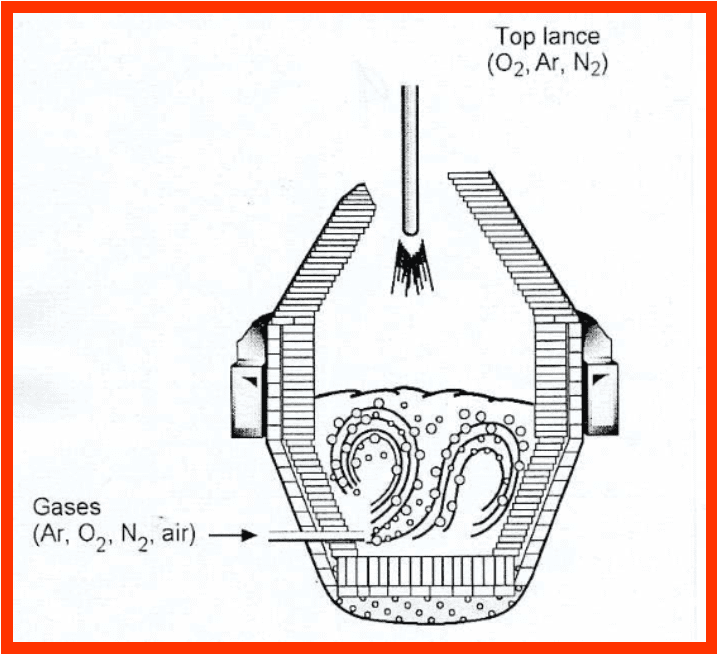Blog What Is AOD (Argon Oxygen Decarburization)?
By: Dave Olsen
AOD stands for Argon Oxygen Decarburization, which is an advanced technology for the refinement of iron, nickel, and cobalt based alloys. By melting a charge in a furnace, and then placing it into the AOD vessel, the metal producer is able to utilize lower cost charge materials, improve mechanical properties, recover nearly 100% of metallic charge elements, and remove dissolved gases, as well as most of the carbon and sulfur. No other process offers similar capabilities in the foundry.
The AOD Process

MetalTek operates AOD vessels at multiple facilities to help provide customers with the alloys they need to perform in high corrosion environments. In fact, MetalTek’s Wisconsin Centrifugal and Sandusky International divisions are of the few centrifugal foundries in the world with AOD capability.
Benefits include cost control and also a significant improvement in mechanical properties and corrosion resistance in alloys processed this way. Improvement of ultimate strength, reduction of area, and impact properties are commonly seen in materials across the AOD alloy range. They are the rationale for the inclusion of AOD in many specifications.
The AOD vessel is a brick lined steel shell with provision for introduction of oxygen and inert gas (argon or nitrogen) below the surface of the molten metal. This introduction causes significant agitation and, therefore, intimate slag-metal contact. Through the management of an additional high oxygen partial pressure gas mix and argon, the metal is refined and can reduce carbon levels to 0.01% or lower. Silicon and aluminum are added to remove more valuable metals from their oxides, resulting in a near 100% recovery.
The chemical removal of other gases allows alloying additions of nitrogen in the molten bath. This is critical for production of modern duplex, super-duplex, and super-austenitic grades. In these cases, AOD is the most cost effective means of achieving the specified nitrogen levels. Silicon levels in the alloy can be lowered by reducing oxygen, allowing users to enjoy better weldability in alloys that they select.
As users push toward use of higher performance corrosion alloys, designers will be able to work to take fuller advantage of the design stress allowance of the alloys due to the increased fluidity of AOD refined alloys. Foundries have noted that AOD refined materials allow proper filling and feeding of thinner cross-sections within the component. There can also be a significant reduction in the total use of weld electrode for upgrade, in some cases by over 50%.
AOD is increasingly used by the premier members of the foundry industry like MetalTek, either directly or through purchase of ingot, to improve alloy performance for the user. Its benefits are increasingly recognized in specifications and by the customer.
Have questions?
Download Our Alloy Guide
Download Our Where Used Guide
Blog Tags
Related Blogs
Sorry, we couldn't find any posts. Please try a different search.
